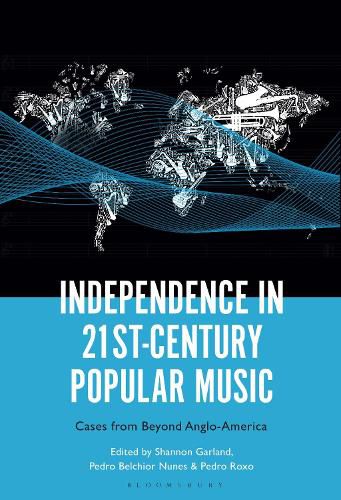Readings Newsletter
Become a Readings Member to make your shopping experience even easier.
Sign in or sign up for free!
You’re not far away from qualifying for FREE standard shipping within Australia
You’ve qualified for FREE standard shipping within Australia
The cart is loading…






Can music be made "independently" in the 21st century?
More than a generation of musicians, music workers, and music companies have now been operating in the context of the profound shifts in music production and dissemination in the "digital era." Scholarly focus on musical independence has often been centered on genres, like punk and indie, rooted in the US and UK. This volume, focused outside the Euro-American context, shows the variety of ways musicians, music workers and businesses manage the economic, media and cultural shifts propelled by digitalization, asking what it means now to say one is "independent." It brings together scholars from around the globe who are researching forms of music production, circulation, consumption and finance that blur the boundaries between the dominant corporate players and "independent" cultural production. With chapters detailing popular music in Argentina, Brazil, Chile, Cuba, Indonesia, Portugal, Spain and Taiwan, independence is shown to be a concept and practice simultaneously nebulous, contradictory, and practical.
$9.00 standard shipping within Australia
FREE standard shipping within Australia for orders over $100.00
Express & International shipping calculated at checkout
Can music be made "independently" in the 21st century?
More than a generation of musicians, music workers, and music companies have now been operating in the context of the profound shifts in music production and dissemination in the "digital era." Scholarly focus on musical independence has often been centered on genres, like punk and indie, rooted in the US and UK. This volume, focused outside the Euro-American context, shows the variety of ways musicians, music workers and businesses manage the economic, media and cultural shifts propelled by digitalization, asking what it means now to say one is "independent." It brings together scholars from around the globe who are researching forms of music production, circulation, consumption and finance that blur the boundaries between the dominant corporate players and "independent" cultural production. With chapters detailing popular music in Argentina, Brazil, Chile, Cuba, Indonesia, Portugal, Spain and Taiwan, independence is shown to be a concept and practice simultaneously nebulous, contradictory, and practical.